Our performances on Jeju 4·3 resonate with the audience: ‘Art Space 52’
From One Generation to Another: Art Space 52
Our performances on Jeju 4·3 resonate with the audience:
‘Art Space 52’
Oh Sang-woon
Co-Representative, Art Space 52
 ++ A small concert is held in the café of Art Space 52.
++ A small concert is held in the café of Art Space 52.
On Dec. 12, 2011, three people from a college drama club, including Jeon Hyeok-joon, Oh Hyeon-soo, and me opened a small theatre named Art Space 52 in the old downtown area of Jungang-ro, Jeju City. Despite the difficulties cleaning and turning the former bar into a theatre, we were hopeful about our dream of creating a space where we can engage in different types of art with many like-minded others.
 ++ A group photo of members in 2016.
++ A group photo of members in 2016.
With only three founding members, we presented mostly two-person plays in the beginning chapter of Art Space 52. Now our theatre has grown through the years to include a group of 150 sponsors and feature some 50 active participants in the performances. In 2018, we left Jungang-ro and moved to the current location in Jeju City’s new downtown area of Yeon-dong.
At Art Space 52, we emphasize the combinative concept of “art and space”, aimed at provoking thoughts on social issues while facilitating various cultural and artistic activities. It is a theatrical art-based space where we can communicate with all those who love culture and art.
By the time we opened Art Space 52, consensus had been achieved on the need for theatrical plays on the theme of Jeju 4·3. We could not dare try, however, because it seemed we lacked the ability to properly cover the heavy topic and conveyed to the audience our thoughts on Jeju 4·3.
Then, in 2018, we were invited to the 70th anniversary event of Jeju 4·3 and staged our first Jeju 4·3 play titled “The Case at the Duplex of Unit 3, District 4”. As described in someone’s review, we told “a heavy story… to make it sound not heavy… and a sad story… to make it sound not sad…” Jeon Hyeok-joon wrote the scenario and directed the play differently from the previous sadness-oriented works, which was reminiscent of Guido Orefice from the film “Life Is Beautiful”. The playwright must have aspired, when talking about Jeju 4·3 to the audience, to having his work shown as a beautiful theatrical play, rather than as a plea that they should learn about Jeju 4·3.
After its first presentation by invitation, “The Case at the Duplex of Unit 3, District 4” became a long-term project that continued throughout December 2018, followed by an encore in 2019. The members of Art Space 52 now share a consensus to promote a Jeju 4·3 project and create at least one theatrical play per year. Our works related to this project include ▲ “Project Yi Eodo” in 2020, ▲ “Gosari Yukgaejang” [Spicy Bracken Soup] and “The Case at the Duplex of Unit 3, District 4” in 2021, and ▲ “I Want to Smash It with a Wooden Club” in 2022.
“The Case at the Duplex of Unit 3, District 4” features two stories. One is told from a modern point of view, and the other describes the past when Jeju 4·3 took place. In the modern story, there is a jobless character named Sangshik. He has trouble sleeping because of partying noise caused by American neighbors living upstairs. Deciding that it is no longer bearable, he invites an older peer from his college club and a friend who is also a member of the club, saying, “We need to have a louder, longer party than the Americans.” Then they have a drink and talk, but eventually argue over different thoughts. In the other story, set against the backdrop of Jeju 4·3, a girl named Soonim and her father go to a certain place with their neighbors, but are suddenly barraged by the gunshots that hit people gathered there. Surviving after her father’s sacrifice, Soonim seeks refuge in a cave and the story goes on.

++ Members visit Keunneolgwe Cave, one of the historic sites of Jeju 4·3.
“Project Yi Eodo” begins with a war against anarchists trying to topple the global government in the distant future where the whole world is ruled by a single government and the issue of inequality and the gap between the rich and the poor arises. A scientist who has developed infinite energy, “Ultima,” is arrested and charged with leading the anarchists. The story of the past, which contrasts with that of the future, begins on March 1, 1947, when police open fire on citizens at a rally to commemorate the March 1 Independence Movement. A character named Eodo insists that he find another character named Doha and prevent the massacres. Can these two stop the killings? What will be the relationship between Ultima, Eodo, and Doha?
In “Gosari Yukgaejang” [Spicy Bracken Soup], Danwoo, wanting to kill himself, stays in a guesthouse in Jeju where he meets the host’s niece, Jeonghyeon, who dreams of holding an exhibition on Jeju 4·3. The two decide to take a dark tour of Jeju 4·3 with different purposes and eventually learn that they are related to each other. The message is that during the period of Jeju 4·3, at present, and in the future, we cannot live separately from others, so we need to rely on each other at every moment.
“I Want to Smash It with a Wooden Club” begins in a cave during Jeju 4·3. Two people who have never met before are confronting each other. Is the other man from the armed resistance forces? Is he from the counterinsurgency forces? Or, is he just an ordinary resident? The two have no clue about each other. The cold atmosphere does not thaw even with conversation. One is madly talkative, while the other is silent. Reaching a lull at the end of the conversation, the characters decide to share the cave, where the story of the people and the time develops.
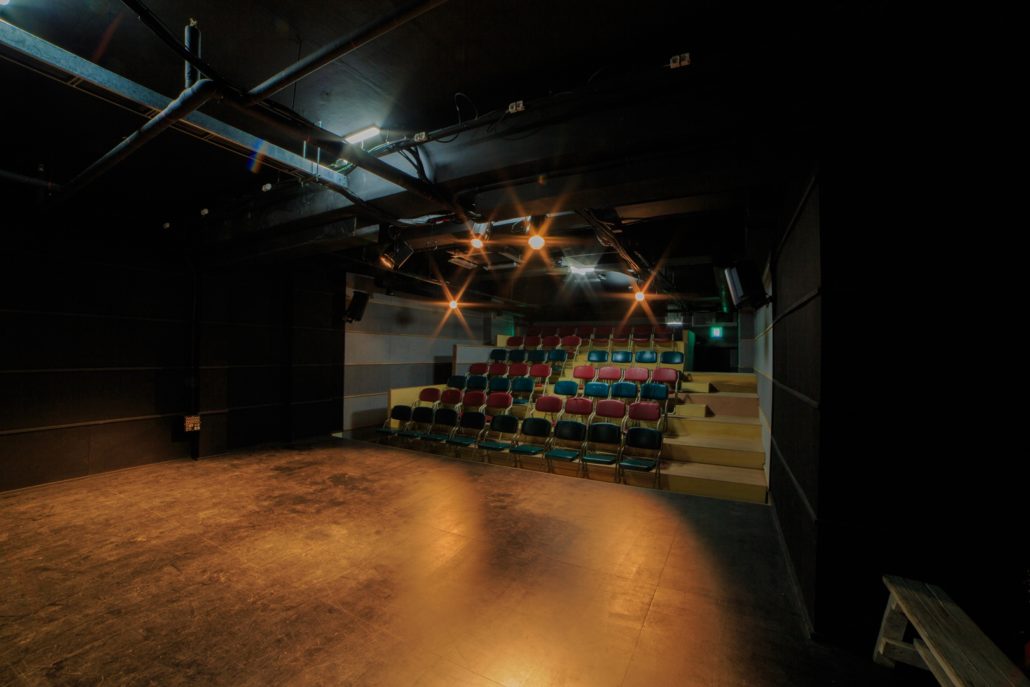
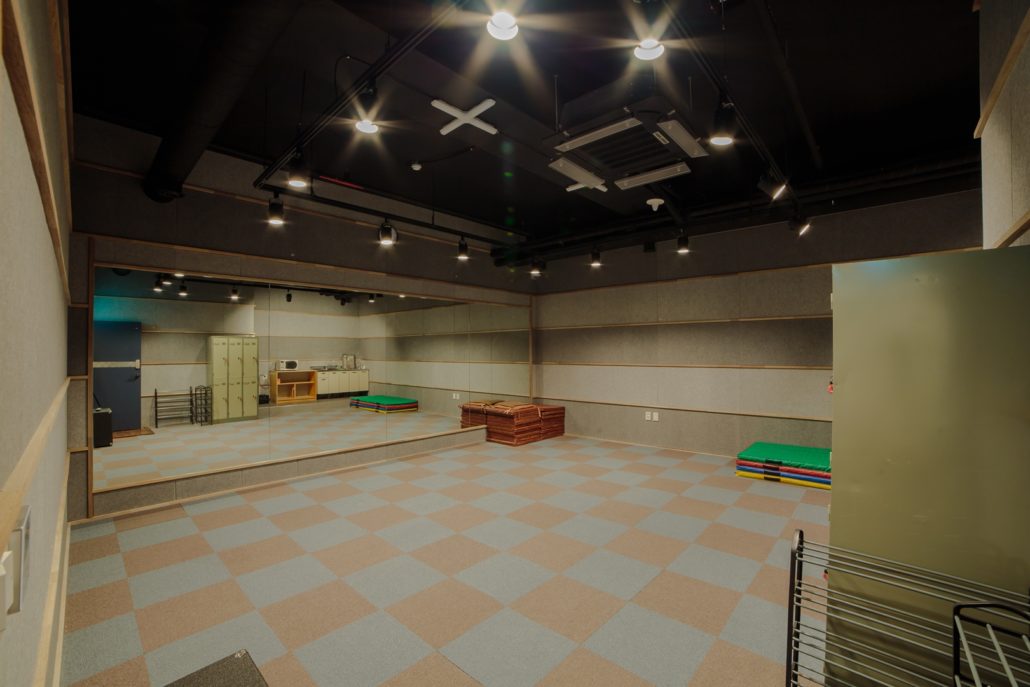
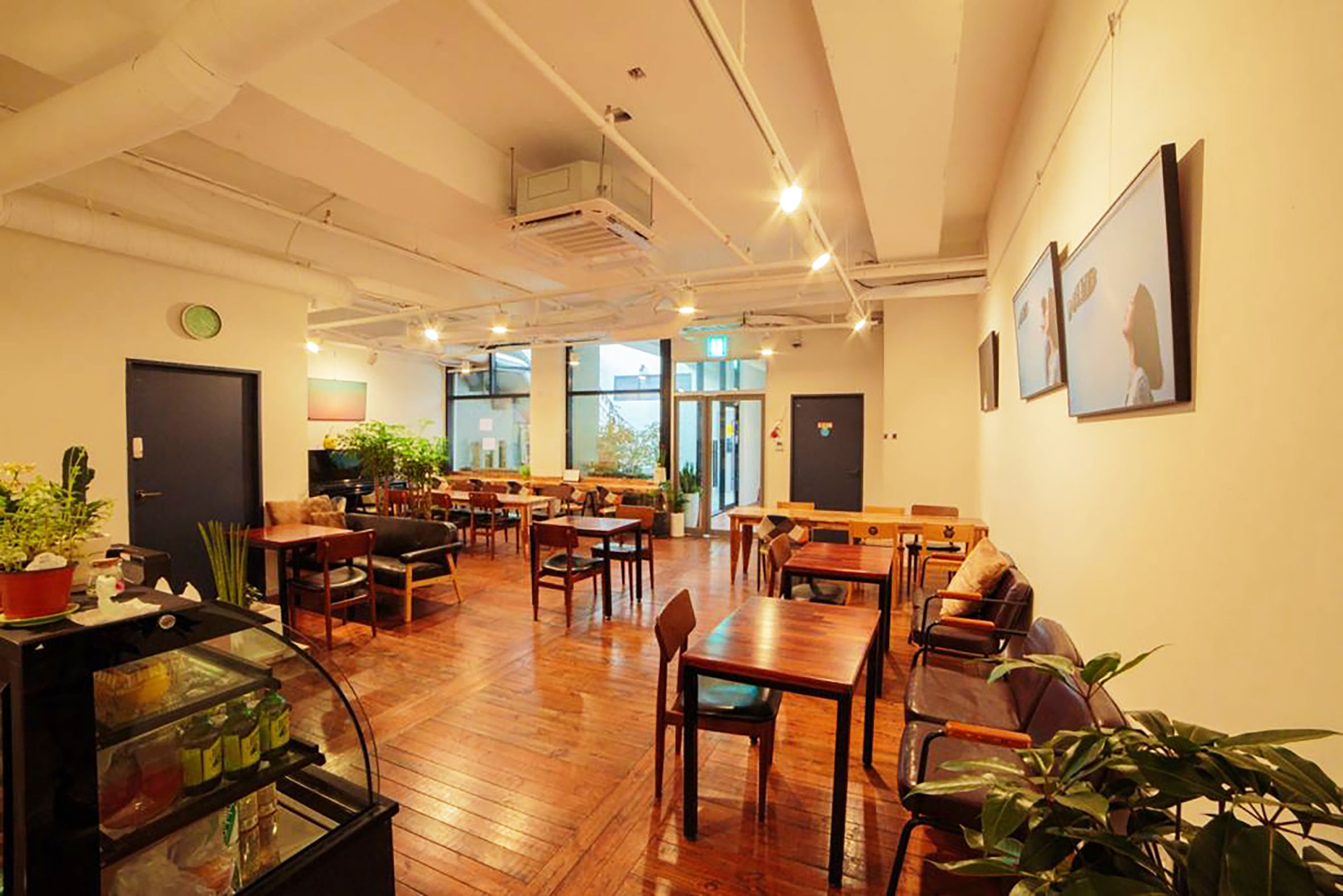 ++ (From top to bottom) Current auditorium, practice room, and Culture Café.
++ (From top to bottom) Current auditorium, practice room, and Culture Café.
Throughout our projects, we have focused on drawing the consensus of our members over why we perform under the theme of Jeju 4·3. It is our belief that our stories can reach the audience only when all our members are convinced and feel a sense of empathy. We learned about Jeju 4·3, visited historical sites, and participated in other events on Jeju 4·3, trying to make our members empathize with the need for performances on Jeju 4·3, both emotionally and cognitively.
“The Case at the Duplex of Unit 3, District 4” was staged every Thursday for nearly seven months. Honestly, it was a laborious project because we had to repeat the task of setting up the stage every Wednesday and dismantling it again after the performances on Thursdays since there were other plays scheduled at Art Space 52. Still, it meant a lot to our members. With the continuous installation and dismantling of the stage, many of our members gained expertise in carpentry. As the same role was starred in by different performers as the project continued, it provided them with an opportunity to reflect on their performances. Most importantly, each member of Art Space 52 was able to add their respective meaning to Jeju 4·3. The weight of a long-term performance was difficult to handle, but the reward at the end was clearly different from what we felt in other performances.
The yearly project on Jeju 4·3 at Art Space 52 is possible due to the active participation of its members, rather than the resolve of its co-representatives. Those performers who are not from Jeju say that they came to love Jeju more after learning about Jeju 4·3. Building and maintaining Jeju’s identity will be possible when there is more consensus among people living in Jeju. One of the issues requiring this consensus would be that we should acknowledge Jeju 4·3 as it is, comfort each other, and use it as a driving force for the future. Jeju 4·3, which served as a knot to unite the members of Art Space 52, will be able to bring Jeju residents together.
Art Space 52 allows its members share a physical and psychological space where they can carry out various art experiments, education, and performing arts. We will keep telling stories of Jeju 4·3 while, at the same time, seriously conducting exploration into society, art, and the sublime value of humans. At Art Space 52, our performances will continue to be on the stage, maintaining both tension and flexibility in a serious but not heavy manner.
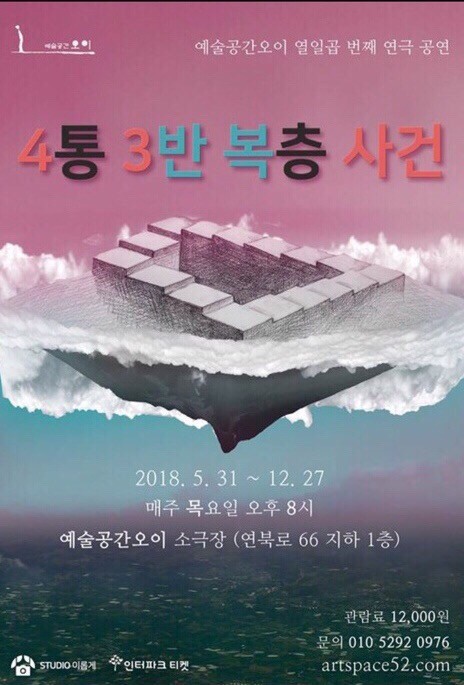
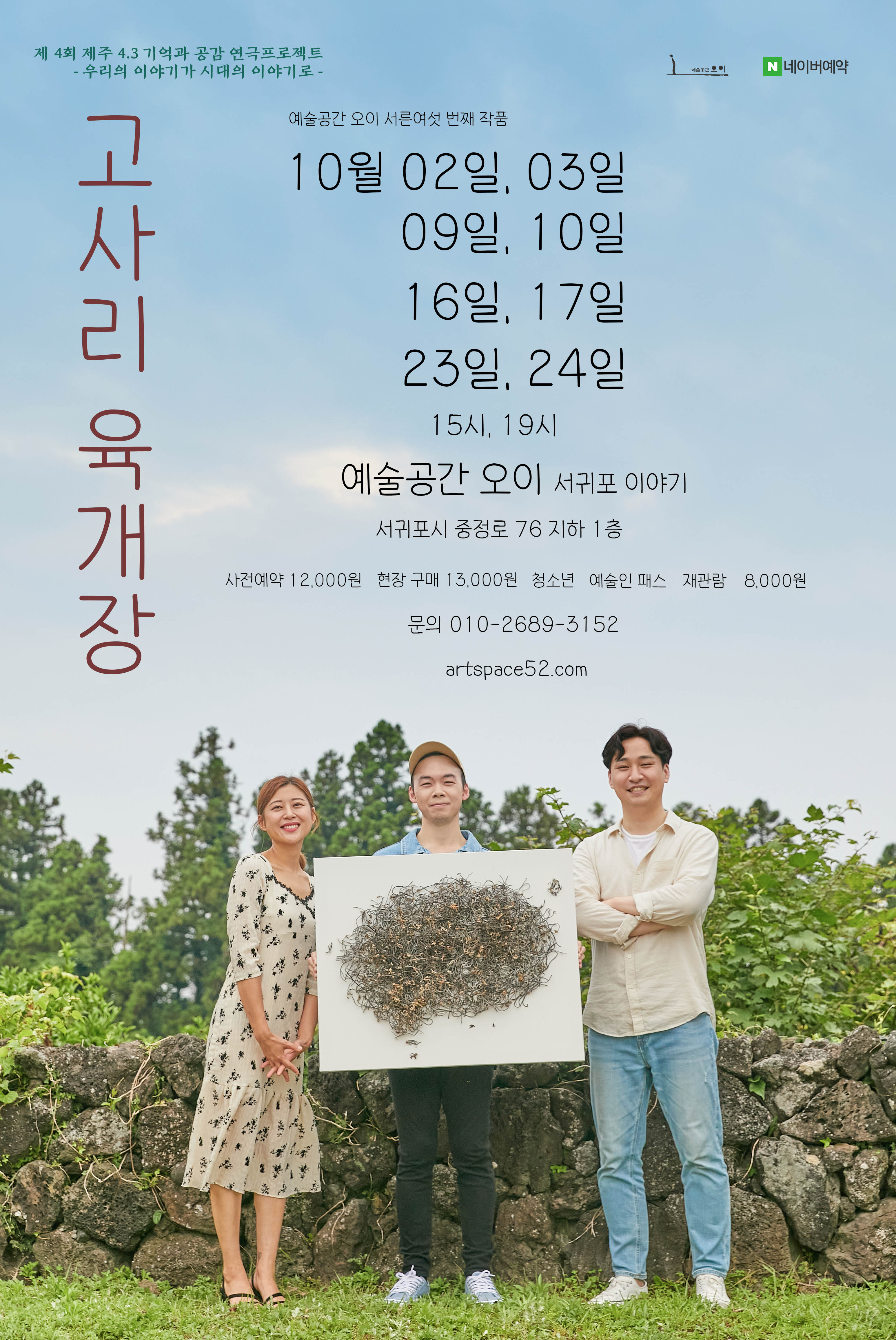
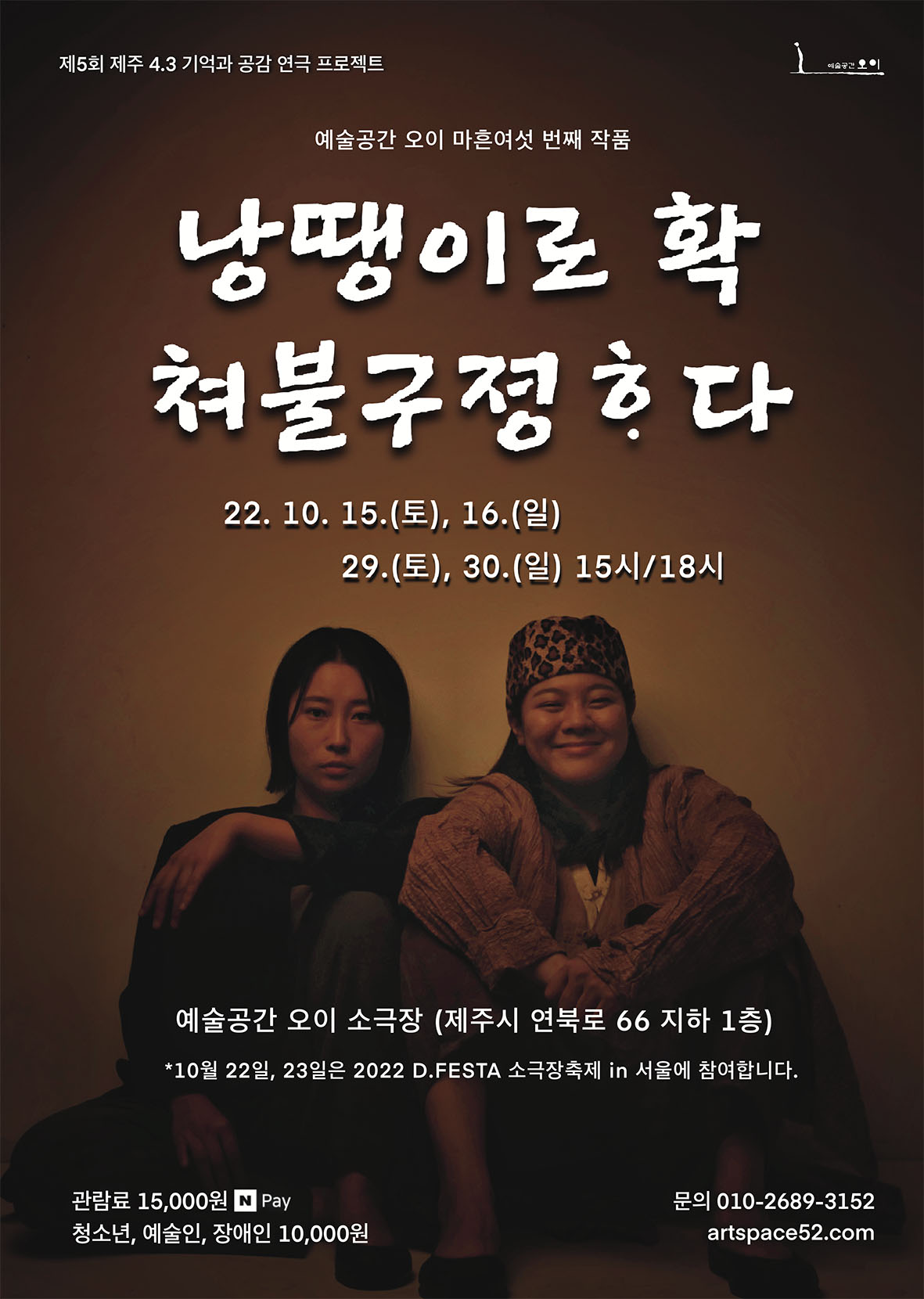
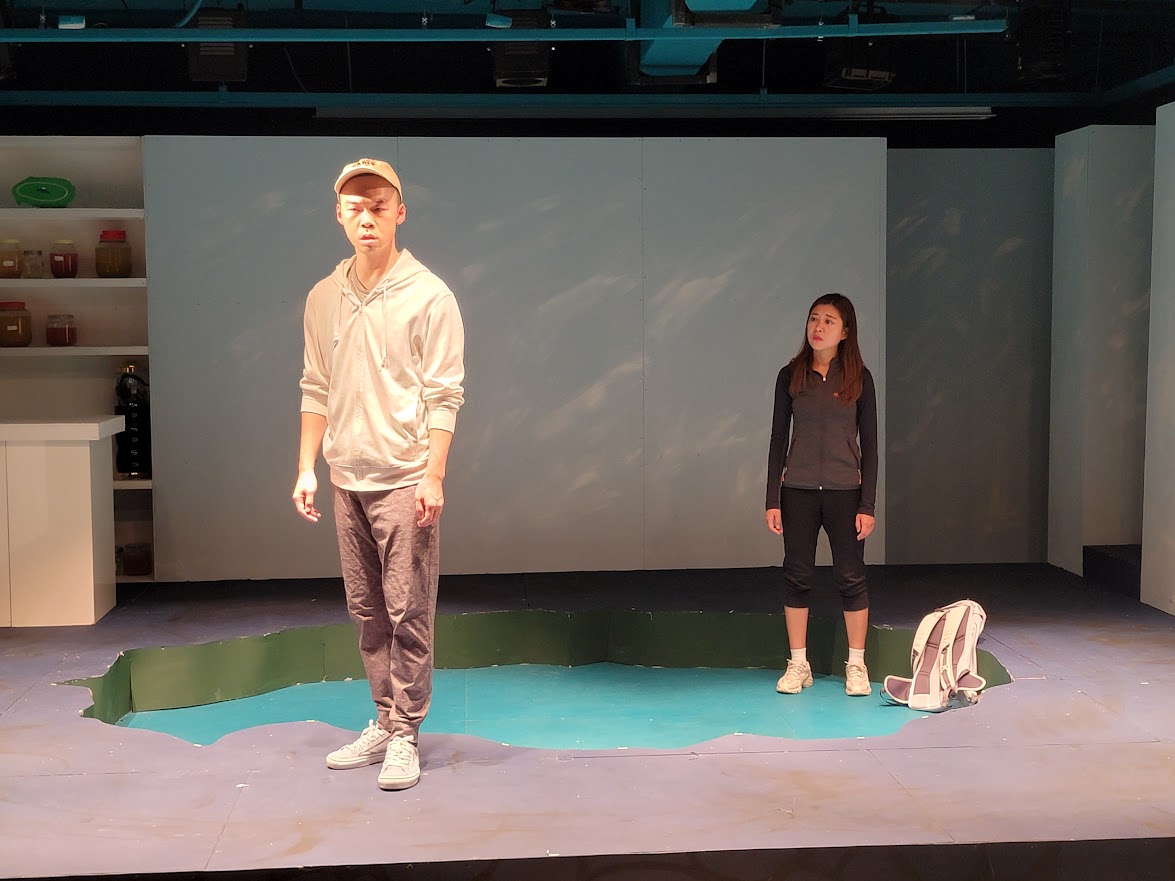
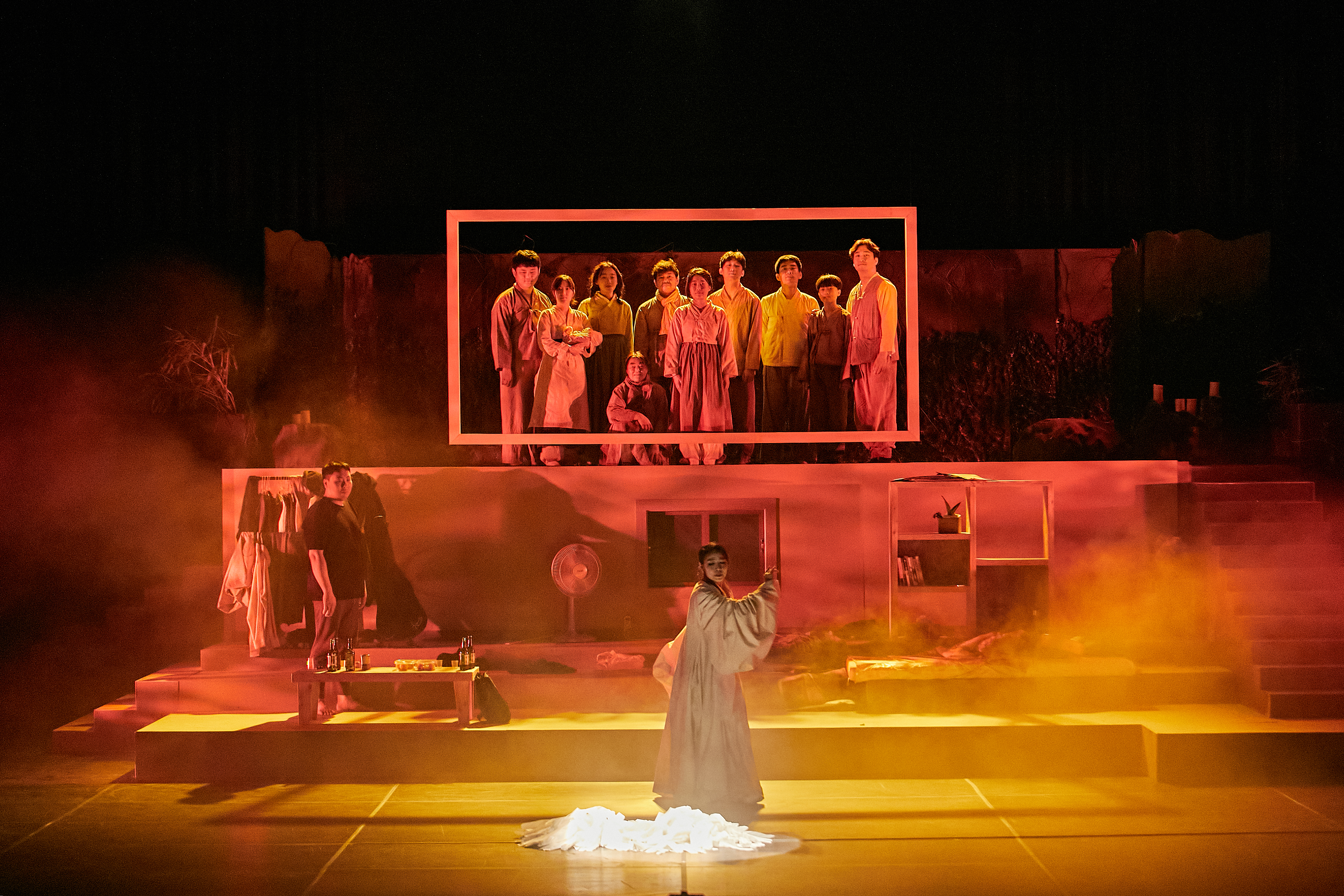
++ Posters and scenes of performances created by Art Space 52.